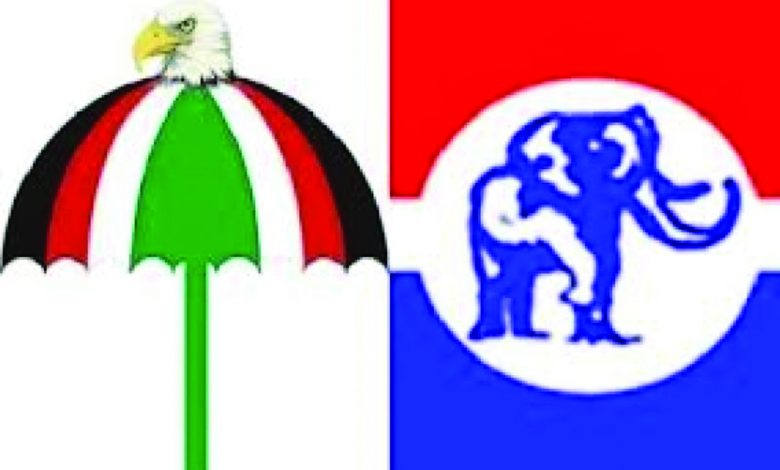
The genesis of the Fourth Republic was in 1992, and, since then, we have had successful elections which saw the alternation of the National Democratic Council (NDC) and the National Patriotic Party (NPP) governing the country. Currently, the mandate of the NPP would end in 2024.
Ghanaians have experienced all that could be associated with partisan politics, and the recent Supreme Court trial, questioning the truthfulness of the outcome of the 2020 elections, serves as the high-water mark of disillusionment with partisan politics in Ghana.
Against the current backdrop of loss of faith in multi-party system by Ghanaians, with the National Popular Party (NPP) and National Democratic Council (NDC) accusing each other of corruption and other malversations, it was time Ghanaians resurrected UNIGOV and appraise it critically as a governance alternative, more suited to our cultural, traditional governance structure than the adopted partisan party system we are currently operating, with its divisive and countervailing effects on the nation.
May I state my position at the outset. Ghana’s future must be a future of scientific and technological inventiveness, full use of our human resources, accelerated industrial and economic ventures, political harmony amongst Ghanaians, peace and prosperity. Such a future cannot be realized by the present political philosophy of partisan politics, with a certified opposition party whose efficiency is measured by the degree of success in thwarting the development programmes of the governing party, in the name of democracy!
Today, party politics have bullet-ridden the nation and left it wounded and bleeding; party politics have pitted us against each other, friends and foes; party politics have divided families, strengthened tribal partisanship, entrenched cronyism, institutionalized corruption, and disenchanted the populace, to the point that Ghana has been neglected, and external predators are having a field day, plundering the nation.
The economic crisis that Ghana is experiencing is the sum total of years of non-planning and lack of consensus on the best way for Ghana to move on. One party says this; another says that; one does this; another does that; one moves north; another moves south. So on and on the nation goes, turning around like a whirling top!
Partisan politics has disoriented Ghanaians and created development cul de sacs for succeeding governments, to the extent that Ghana has experienced continuous financial hemorrhage, wastage of human capital, and a whirl of activities that lead nowhere.
What is required is a convergence of thought and vision, articulated through national programmes, and implemented with the goodwill of Ghanaians: One nation. One people.One Destiny. This is the essence of “Union Government” (UNIGOV).
Summarily, let me state the positive outcomes of UNIGOV, as I contemplate it, vis a vis partisan politics.
One. National plans shall be formulated with long-termperspective, say twenty to thirty years, and would be a distillation of the best that Ghanaians are capable of. The National Development Commission exists for this purpose. Such plans under a UNIGOV would be binding on the nation, for as long as they are relevant. Succeeding Governments shall carry the plans through, with appropriate modifications, where necessary.
In partisan government, one party abandons the plans of the precedinggovernment, out of pettiness and political idiocy. The NDC formulated the “VISION 2020” programme, but the NPP jettisoned the plan and replaced it with theirs: GHANA POVERTY REDUCTION STRATEGY.
Two. Within the forum of a unicameral UNIGOV parliament, ideas and plans shall be discussed dispassionately and, ultimately, a consensus would show the best way forward. In partisan government, the opposition consciously undermines the reigning government, plans coup d’etats, civil disobedience, walk-outs, and such destructive mechanisms to frustrate the government, or block their agenda of a sort, or destroy their reputation before the populace.
Three. Under UNIGOV, projects would be executed to a perfect finish because of continuity of plans, regardless of who is in power. In partisan politics, succeeding governments abandon projects started by the previous ones, and we have a litany of such abandoned projects in Ghana, since 1966!Some E-schools built by the NDC remain unused by the NPP till date.
Four. UNIGOV would not protect corrupt and incompetent appointees. Partisan politics place the interests of the ruling party over that of the nation. In other words, the welfare of the party is foremost; secondly, the financial security of the members is next; the last on the list is the nation! Almost all the malversations in government have been committed by the Presidents, party members, Ministers, and other appointees. The latest scandal relates to the Sputnik vaccines involving the Minister for Health,MrKwakuAgyeman Manu.
Five.Under a UNIGOV political system, persons shall stand as independent candidates and win or lose, based on their integrity and achievements, and not on whimsical party slogans.
Conclusively, we shall make tremendous advancements under UNIGOV and assure the nation of unceasing economic and technological growth, stability and prosperity within the democratic matrix of a UNIGOV Constitution.
What should matter to us, as a nation, is how to formulate a governing ideology that overcomes the destabilizing mechanism of party politics. Above all, we shall also be promoting our own home-grown political inventiveness and common sense, instead of the unreasoning imitation of foreign political systems that have been very effective in keeping Africa undeveloped, destabilized, turbulent and poor.UNIGOV is our own; let’s embrace it!
By Ahumah Ocansey



